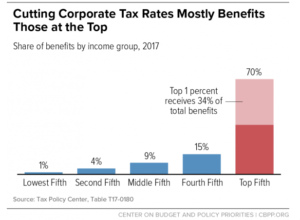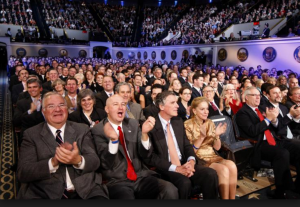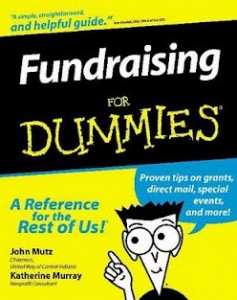 Yesterday, Minnesota House Republicans–following the lead of President Trump and congressional supporters like Representatives Lewis, Emmer and Paulsen–enacted legislation to lower Minnesota’s corporate taxes from 9.8 to 9.06 in 2020.
Yesterday, Minnesota House Republicans–following the lead of President Trump and congressional supporters like Representatives Lewis, Emmer and Paulsen–enacted legislation to lower Minnesota’s corporate taxes from 9.8 to 9.06 in 2020.
On most levels, cutting Minnesota’s corporate taxes makes no sense.
BAD POLITICS. Minnesota House Republicans certainly aren’t cutting corporation’s taxes because most of their constituents want it. By an overwhelming three-to-one margin, a Pew Research survey recently found that Americans say corporate taxes at the federal level should be raised (52%) or kept the same (21%), as opposed to lowered (24%), as Minnesota House Republicans are doing. There’s no reason to believe that Minnesotans would view cutting corporate taxes at the state level much differently than Americans do at the federal level.
BAD FOR NECESSARY INVESTMENTS. Minnesota Republicans aren’t cutting corporate taxes to help help finance necessary and popular state investments in things such as infrastructure, education, and health protections. After all, corporate tax cuts will significantly reduce state funding available for such investments.
BAD FOR MOST CONSTITUENTS. If Minnesota Republicans are cutting those corporate taxes because they believe doing so will help their constituents, they should dig more deeply into the facts. We’ve already seen at the federal level that the benefits of federal corporate tax cuts are mostly staying with corporations and wealthy people. As CNN Money recently reported:
The White House has celebrated the tax cut bonuses unveiled by the likes of Walmart (WMT), Bank of America (BAC) and Disney (DIS).
Yet shareholders, not workers, are far bigger direct winners from the Tax Cuts and Jobs Act of 2017.
American companies have lavished Wall Street with $171 billion of stock buyback announcements so far this year, according to research firm Birinyi Associates. That’s a record-high for this point of the year and more than double the $76 billion that Corporate America disclosed at the same point of 2017.
Wall Street loves buybacks because they tend to boost the share price in part by inflating a key measure of profitability. In just the past three days, Cisco (CSCO), Pepsi (PEP) and drug maker AbbVie (ABBV) have promised a total of $50 billion of buybacks.
“It’s the largest ever — and nothing has really changed, except the tax law,” said Jeffrey Rubin, director of research at Birinyi Associates.
Conservative Republican Senator Marco Rubio summarized the situation well when he recently told The Economist “there’s no evidence whatsoever that the money’s been massively poured back into the American worker.”
Federal corporate tax cuts are primarily good for a very small slice of the wealthiest citizens. The Center for Budget and Policy Priorities analysis finds:
“Mainstream estimates conclude that more than one-third of the benefit of corporate rate cuts flows to the top 1 percent of Americans, and 70 percent flows to the top fifth. Corporate rate cuts could even hurt most Americans since they must eventually be paid for with other tax increases or spending cuts.[1]
While this analysis focuses on federal corporate tax cuts, it’s reasonable to assume that the same is true with state corporate tax cuts.
GOOD FOR CAMPAIGN DONATIONS. At the same time, cutting corporate taxes would ingratiate Minnesota House Republican legislators to large campaign donors in corporations.
I’ll let you reach your own conclusion about what is going on here.

 If I were a political party chair, I would make one simple adjustment to make my party more competitive. I would only allow general election swing voters to attend candidate debates.
If I were a political party chair, I would make one simple adjustment to make my party more competitive. I would only allow general election swing voters to attend candidate debates. Become a member of our dynamic Minnesota House of Representatives team! We are seeking candidates with deep professional experience, strong educational background, extensive community ties, impeccable personal ethics and morals, outstanding interpersonal skills, uncommon diplomatic acumen, stellar leadership qualities, deep policy expertise in several different areas, and a highly photogenic family. Come associate your good name with an organization that has the approval of a historically low
Become a member of our dynamic Minnesota House of Representatives team! We are seeking candidates with deep professional experience, strong educational background, extensive community ties, impeccable personal ethics and morals, outstanding interpersonal skills, uncommon diplomatic acumen, stellar leadership qualities, deep policy expertise in several different areas, and a highly photogenic family. Come associate your good name with an organization that has the approval of a historically low 






